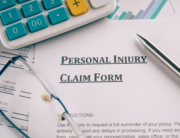 When you suffer injuries in an accident, you will need to work with an insurance adjuster as you are going through the claims process. While most insurance agents and adjusters are cordial and cooperative, it is important to keep in mind that insurance companies are a for-profit business. There are certain things you should know about how to deal with the insurance adjusters and what your rights are after an accident.
When you suffer injuries in an accident, you will need to work with an insurance adjuster as you are going through the claims process. While most insurance agents and adjusters are cordial and cooperative, it is important to keep in mind that insurance companies are a for-profit business. There are certain things you should know about how to deal with the insurance adjusters and what your rights are after an accident.
As an injury victim, the state of Florida says you are entitled to seek compensation if ever you are hurt because of another’s negligence. Adjusters receive training to minimize payouts to accident victims to improve the company’s bottom-line. They may use tactics such as “forgetting” to tell you about certain damages you are entitled to, or preying on your financial need and offering you a quick, lowball settlement.
Below, we discuss a few key points to keep in mind if you are filing a claim. Handling your communications with the insurance company correctly and making informed decisions will put you in a much better position to get the full amount of compensation you are entitled to.
Do I have to agree to give a recorded statement?
You absolutely do not have to agree to provide the other party’s insurance company with a recorded statement. In fact, we highly recommend against it.
Note: Because you signed a contract with your insurance company, you may have to provide it with a recorded statement. Check your policy to make sure.
During a recorded phone call, the insurance adjuster will try to elicit info from you about the accident, and get your input on the incident as well as on your injuries. But what a lot of people do not realize is that innocent off-handed remarks can often be used by insurers to deny claims or reduce claimants’ settlements. Simple statements such as “I’m okay” (even though you sustained injuries) can be later use to refute your injuries. The adjuster can use a statement like, “I’m so sorry this happened,” to mean that you are admitting fault for the accident.
On that note, never admit fault when speaking to an adjuster (you simply do not have all the facts of the case and there may be elements you are unaware of), and never agree to provide a recorded statement without speaking to a lawyer first. When you call to report the accident and the agent asks you if you would be okay with her recording the call, simply say something along the lines of, “I’ll have to call you back at a later time for that.” Then call a lawyer for counsel.
Should I jump on the first settlement offer they give me?
As we have already mentioned, as much as insurers try to exude care and concern for their clients, they are still very much aware of company profits. Adjusters often offer you a small settlement shortly after the accident, hoping you will either be financially desperate enough to sign it without question, or clueless as to what you are actually entitled to.
So if you remember nothing else from this article, remember this: You should never sign a settlement offer without first running it by an attorney. You need to wait until you factor in all your prognoses and possible future expenses related to your injuries before you know how much compensation you are entitled to.
Your attorney can comb through your case, create a comprehensive list of damages, and then help you negotiate for a higher settlement. If the adjuster makes you an offer, ask for it in writing and take it to an attorney.
Should I release my medical records to the insurer?
Insurance companies only need to see your medical records related to your accident. They do not need your complete medical history. Releasing your full medical records may actually damage your case. If the insurance adjuster notices an old back injury in your file, for example, she might be able to use that to say your back injury from the accident was actually pre-existing and therefore not compensable.
If the insurer asks you to sign a medical release, go to your attorney first. Your lawyer can draft or edit release forms in order to make sure that you only release pertinent records.
What signs of insurance bad faith should I watch for?
Most insurance companies conduct business in an ethical manner. But in some cases, their quest for profit shrouds their judgement, and it may cause them to take unscrupulous action with victims’ claims.
Fortunately, Florida law protects injury victims from “insurance bad faith.” Florida law holds insurers to certain legal standards and protocols that they have to follow when handling victims’ claims. In short, they have to conduct claims in an ethical and timely manner. If they fail to uphold these standards and act in “bad faith,” victims can hold the company accountable for their actions and pursue compensation for damages.
Watch for signs of insurance bad faith after you have filed your claim, and contact an attorney if you suspect something is amiss.
- Failing to respond to receipt of your claim
- Denying or delaying payment without providing reason
- Requesting documents that they really do not need
- Failing to approve or deny your claim within a reasonable amount of time
- Using illegal investigation procedures
- Harassing you or using demeaning investigation methods
Do I have adequate evidence to prove my claim to damages?
In order to get the compensation you deserve, you have to have adequate evidence to prove your right to damages. Medical records can help, as can testimonies from medical experts. The records and doctor’s reports should give a clear picture of your prognoses and the future treatments doctors expect you will need. You will also need evidence of lost wages, testimonies from mental health experts (for emotional damages), and receipts for other injury-related expenses.
You will want to work with your attorney to compile substantial supportive evidence that will show the insurance company the extent of your injuries, your current and future expenses, and how the accident has affected your life and your family members’ lives. Your attorney can present the evidence during negotiations to prove your entitlement to damages.
For help dealing with insurance adjusters in Florida, call a car accident attorney at Montero Law. Contact us today at 954-767-6500 and request a free consultation.
 English
English  Español
Español 




